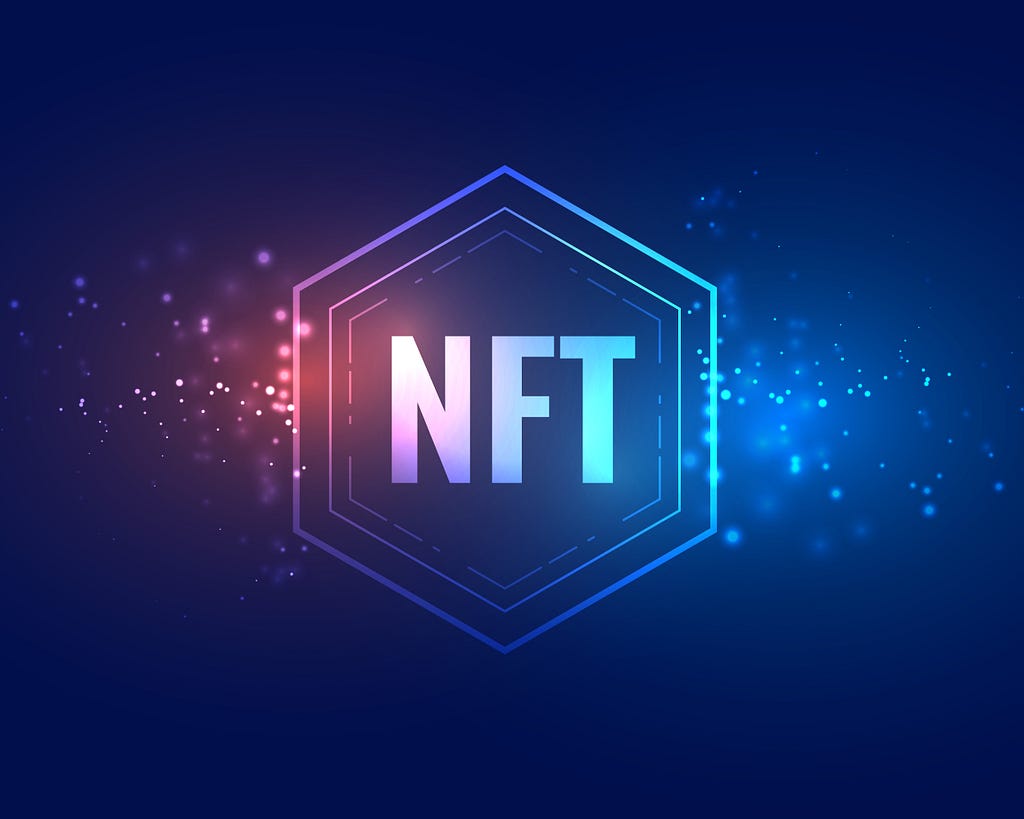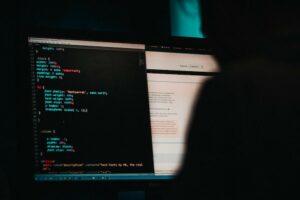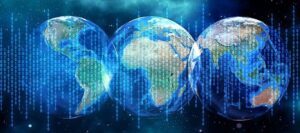
Non-fungible tokens (NFTs) have made a significant impact in the digital world, initially capturing attention through digital art and collectibles. However, the potential of NFTs extends far beyond these initial applications, with various NFT Development services emerging to support this evolution. In 2025, we see NFTs being applied across diverse industries, creating new opportunities for businesses and consumers alike. This blog explores these innovative use cases, providing insights for businesses and potential clients looking into NFT Development services.
What are NFTs?
NFTs are unique digital assets that represent ownership of a specific item or piece of content. Unlike cryptocurrencies, which are fungible (interchangeable), each NFT is distinct and cannot be replaced by another. This uniqueness is guaranteed by blockchain technology, which provides a secure and transparent record of ownership. Because NFTs are irreplaceable, they are very useful in scenarios where verifiable digital scarcity is important.
The Evolution of NFTs
NFTs first gained prominence in the art world, offering artists a new way to monetize their digital creations. However, as the technology matured, its potential applications became clear in other sectors such as gaming, real estate, and supply chain management. In 2025, we are witnessing the realization of these possibilities, with NFTs becoming integrated into various aspects of our daily lives.
NFT Use Cases Beyond Art
NFTs are being used in a variety of applications beyond art. Some of the most notable include:
- Gaming and Virtual Assets: NFTs are creating ownership systems that allow players to securely own their virtual assets. In traditional gaming models, developers often restrict ownership of in-game items. NFTs change this by enabling players to buy, sell, and trade digital assets, boosting their monetary worth. Games like Axie Infinity and The Sandbox have successfully integrated NFTs, creating new ways to earn money in simulated worlds.
- Real Estate and Virtual Land: Both virtual and physical real estate markets are adopting NFTs. Virtual land within platforms like Decentraland and The Sandbox can be purchased, sold, and developed into NFTs. These virtual properties can then be used for advertising, rentals, or virtual experiences. For physical real estate, NFTs simplify transactions by converting ownership into digital tokens, promoting more transparent and efficient market operations.
- Intellectual Property and Royalties: NFTs allow artists, musicians, and content creators to retain control over their intellectual property rights. The transparency of blockchain enables automatic royalty distribution whenever a digital asset is resold. This automated payment system ensures that creators receive earnings and protects their work from unauthorized distribution. Examples include Kings of Leon and Snoop Dogg, who have released NFT-based albums, changing music rights management.
- Ticketing and Memberships: Event promoters are using NFT-based tickets to combat fraud and prevent ticket scalping. Because NFTs cannot be duplicated, counterfeit tickets are eliminated. Smart contracts embedded in NFTs also allow organizers to receive royalties when tokens are transferred between users. Sports teams and music festivals are increasingly interested in NFT ticketing systems because they offer better security and fan engagement.
- Supply Chain and Authentication: NFTs are being used by luxury brands, pharmaceutical companies, and the food sector to increase supply chain transparency. Blockchain helps businesses monitor their products, preventing counterfeits from entering the market. Customers receive verified proof of ownership through NFT integrations by brands like Louis Vuitton and Nike.
- Music: Musicians can tokenize their music, creating limited editions or special releases that fans can purchase and own. This direct artist-to-fan connection opens up new revenue streams and disrupts traditional distribution models. For example, Kings of Leon released their album as an NFT, including exclusive perks like concert tickets and backstage passes for token holders.
- Fashion: The fashion industry is using NFTs to change how consumers experience clothing. Virtual wearables, avatar customization, and digital fashion shows are becoming more common. Brands like Gucci, Nike, and Prada are creating virtual collections that allow users to dress their avatars in exclusive styles. Platforms like DRESSX enable virtual try-ons, blending technology with sustainability.
- Sports: The sports industry is using NFTs to build deeper connections with fans. Tokenizing iconic moments, autographs, and digital collectibles allows fans to own a piece of their favorite teams’ history. Blockchain ensures authenticity and scarcity, increasing value for collectors. Virtual meet-and-greets and exclusive merchandise are a few ways sports NFTs are changing fan engagement while creating new revenue streams for athletes and organizations.
- Digital Ownership: NFTs provide a solution to digital ownership, providing a way to represent and transfer ownership of digital assets. NFTs can be used to represent ownership of digital art, music, videos, and virtual real estate.
- Charity and Nonprofit: Charities can create NFTs that represent donations, allowing donors to have a tangible and digital asset that represents their contribution. NFTs can also be used to represent specific charitable causes, creating awareness and engagement around important social issues.
The Role of NFTs in the Metaverse
The metaverse and NFTs are closely linked, with NFTs supporting virtual ownership. From digital real estate to customizable avatars, NFTs allow users to create, trade, and own assets across interconnected virtual worlds. Platforms like Decentraland and The Sandbox demonstrate how NFTs are driving engagement, offering unique social and commercial experiences.
NFT Trends in 2025
Several key trends are shaping the NFT space in 2025:
- Utility-Driven NFTs: NFTs are offering value beyond digital ownership. These tokens provide exclusive memberships, event access, and real-world perks, making them valuable across industries like gaming, entertainment, and fashion.
- Artistic Evolution of NFTs: Creators are integrating augmented reality (AR) and virtual reality (VR) to craft immersive, interactive art experiences. Platforms empower artists to connect directly with collectors, bypassing traditional systems.
- Tokenizing Real-World Assets (RWAs): NFTs are bridging the gap between physical and digital worlds by tokenizing tangible assets. From luxury properties to rare collectibles, RWAs democratize ownership through fractional investments.
- Dynamic NFTs: These tokens can change over time based on user engagement or external factors, making them ideal for gaming, storytelling, and education.
- AI-Generated NFTs: Artists are using AI to create dynamic, evolving NFTs that adapt over time based on user interaction.
Benefits of NFT Development
In 2025, companies are incorporating non-fungible token development services as part of their strategies due to their potential for innovation, market growth, and increased utility:
- New Revenue Opportunities: NFTs offer creators and developers revenue opportunities through royalties on secondary sales, ensuring a steady income stream each time an asset changes hands.
- Enhanced User Engagement: NFTs enhance user engagement by providing unique digital assets that users can collect, trade and use within various platforms.
- Brand Building: Companies can use NFTs to create unique brand experiences and build stronger connections with their customers.
- Access to New Markets: NFT Development opens access to new markets and audiences, allowing businesses to reach a broader customer base.
- Improved Transparency and Security: Blockchain ensures transparency and security, reducing the risk of fraud and counterfeiting.
Challenges and Considerations
Despite the opportunities, there are challenges to consider:
- Environmental Impact: High energy usage from some blockchain networks has raised environmental concerns. However, solutions like Ethereum’s shift to proof-of-stake are addressing these issues.
- Regulatory Uncertainty: The regulatory framework around NFTs is still evolving. Businesses need to stay informed about legal and compliance requirements to reduce risks and create sustainable NFT projects.
Conclusion
NFTs have moved beyond their initial focus on digital art; they find practical applications across various industries. In 2025 they offer businesses innovative ways to create new revenue streams while enhancing engagement efficiency. As the technology continues to mature further into our daily lives; it will play an increasingly important role in the digital economy.
Ready to explore the potential of NFTs for your business? Contact Codezeros today to learn more about our NFT Development services and how we can help you create innovative solutions for the digital world.
NFTs Beyond Art: Exploring New Use Cases in 2025 was originally published in Cryptocurrency Scripts on Medium, where people are continuing the conversation by highlighting and responding to this story.







